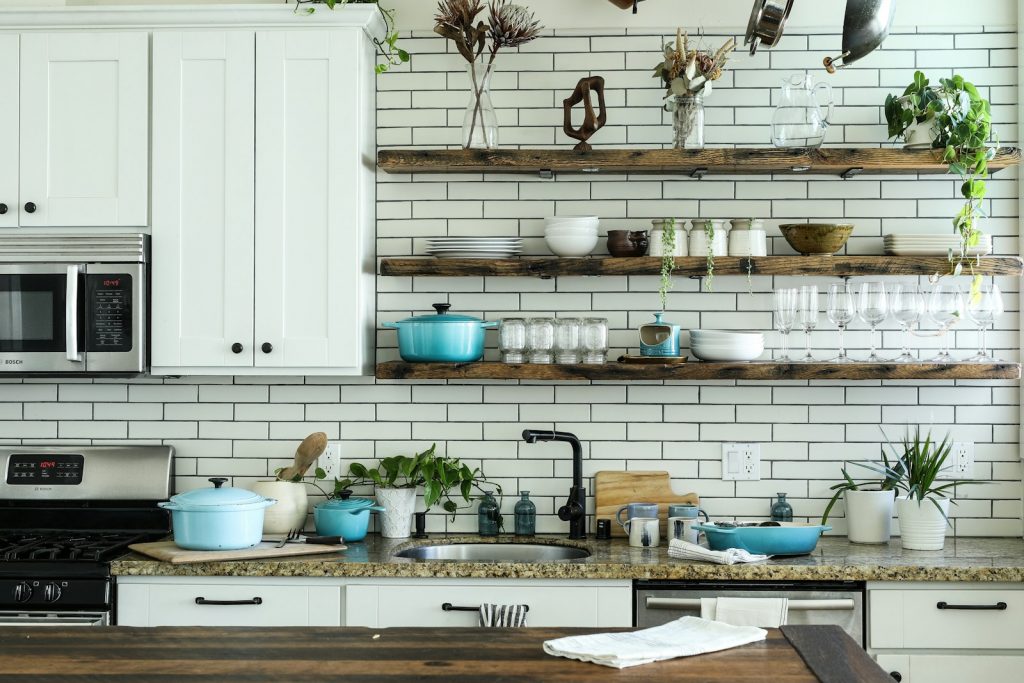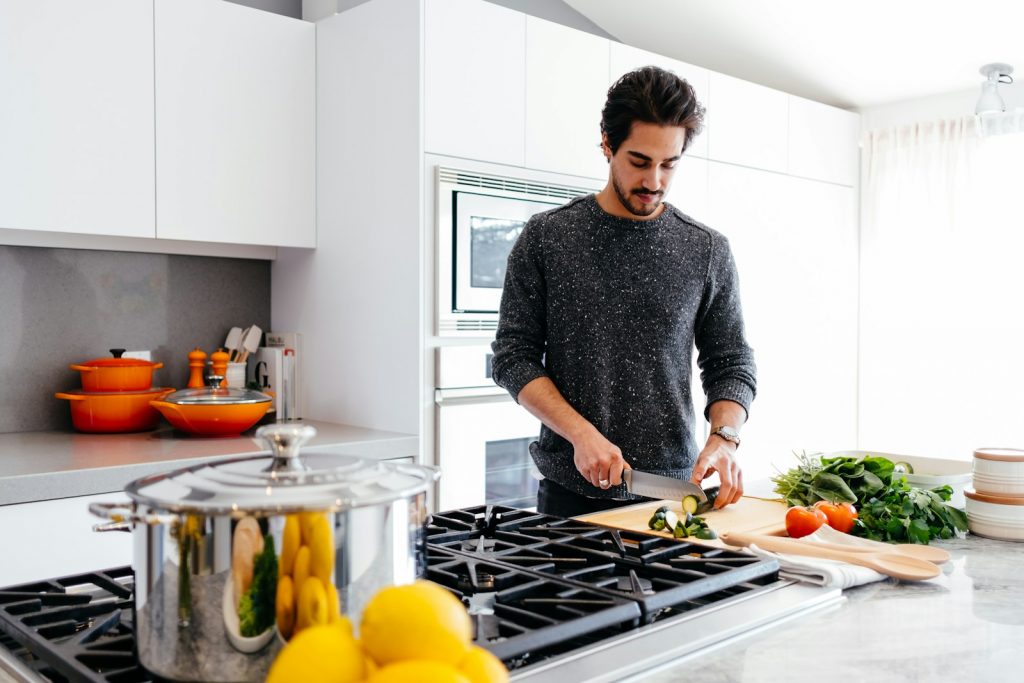What are the best DIY natural kitchen cleaners for a safe and eco-friendly home?
Keeping your kitchen clean is essential for maintaining a healthy and inviting home environment. However, many conventional kitchen cleaners contain harsh chemicals that can pose health risks to your family and pets, as well as harm the environment through toxic runoff and plastic waste. This is where DIY natural kitchen cleaners come in as a fantastic alternative. These homemade cleaners use simple, natural ingredients like vinegar, baking soda, lemon, and castile soap to effectively clean, disinfect, and deodorize your kitchen surfaces without the use of synthetic chemicals.
DIY natural kitchen cleaners are not only safer but also budget-friendly and easy to make with ingredients you probably already have in your pantry. By switching to these eco-friendly cleaning recipes, you reduce your household’s environmental footprint, avoid exposure to harmful toxins, and create a healthier living space. In this article, we’ll explore the best natural ingredients for homemade kitchen cleaners, share easy-to-follow recipes, and answer common questions to help you confidently make the switch to green cleaning.
5 Key Ingredients for DIY Natural Kitchen Cleaners
Understanding the properties of natural ingredients helps you create effective cleaning solutions tailored to your kitchen needs. Here are five essential ingredients commonly used in DIY natural kitchen cleaners:
- White Vinegar: White vinegar is a powerhouse natural cleaner. Its acidic nature helps dissolve grease, remove mineral deposits, and neutralize odors. It also has mild antibacterial properties, making it great for disinfecting countertops and sinks. However, avoid using vinegar on natural stone surfaces like granite or marble, as the acid can etch the surface.
- Baking Soda: Baking soda is a gentle abrasive that helps scrub away grime and stains without scratching delicate surfaces. It also neutralizes odors and can be used to unclog drains when combined with vinegar. Baking soda is safe to use on most kitchen surfaces, including stainless steel and ceramic.
- Castile Soap: This plant-based, biodegradable soap is a versatile cleaning agent that lifts dirt and grease effectively. It’s gentle on the skin and surfaces, making it ideal for all-purpose cleaners and dish soaps. Castile soap can be combined with other ingredients to boost cleaning power.
- Lemon Juice: Lemon juice is naturally acidic and acts as a degreaser and sanitizer. It also leaves behind a fresh, pleasant scent. Lemon’s natural bleaching properties make it useful for removing stains and brightening surfaces. Like vinegar, avoid using lemon juice on natural stone.
- Essential Oils: Essential oils such as tea tree, lavender, eucalyptus, and lemon add antimicrobial properties and delightful fragrances to your cleaners. They can also enhance the cleaning effectiveness and help eliminate kitchen odors.
Why Choose DIY Natural Kitchen Cleaners?
Choosing DIY natural kitchen cleaners offers a range of benefits that go beyond just cleaning your home. Here are some compelling reasons to make the switch:
- Healthier Home Environment: Conventional cleaners often contain volatile organic compounds (VOCs), synthetic fragrances, and harsh chemicals that can irritate the skin, eyes, and respiratory system. Natural cleaners reduce these risks and are safer for children and pets.
- Environmental Impact: Many store-bought cleaners come in plastic packaging and contain chemicals that pollute waterways. DIY cleaners use biodegradable ingredients and reusable containers, reducing plastic waste and chemical pollution.
- Cost Savings: Ingredients like vinegar, baking soda, and lemon are inexpensive and multi-purpose, allowing you to save money compared to purchasing multiple commercial cleaning products.
- Customizable and Versatile: You can tailor recipes to suit your cleaning needs and scent preferences, making your cleaning routine more enjoyable and effective.
- Simple and Accessible: Most DIY natural kitchen cleaners require just a few ingredients and minimal preparation, making them accessible for beginners and busy families.
Top 10 Questions About DIY Natural Kitchen Cleaners
- Do homemade kitchen cleaners really work?
Yes, when made with the right ingredients, homemade kitchen cleaners are highly effective at removing grease, stains, and odors. Vinegar and baking soda, for example, have been proven to clean and deodorize surfaces naturally and safely.
- Are DIY natural kitchen cleaners safe for children and pets?
Most DIY natural cleaners use non-toxic ingredients that are much safer than many commercial products. However, it’s still important to keep cleaners out of reach of children and pets and to label your homemade solutions clearly.
- What surfaces can I clean with homemade kitchen cleaners?
You can safely clean countertops, sinks, stovetops, appliances, cutting boards, and tile surfaces. Avoid using acidic cleaners like vinegar and lemon on natural stone surfaces such as granite, marble, or limestone to prevent damage.
- How do I make a basic all-purpose kitchen cleaner?
A simple recipe is to mix equal parts distilled white vinegar and water in a spray bottle, add 10-15 drops of your favorite essential oil for fragrance, and optionally add a tablespoon of castile soap for extra cleaning power.
- Can I use baking soda and vinegar together?
Yes, but they react chemically and fizz when combined. This reaction can be useful for scrubbing tough stains or unclogging drains but is less effective as a regular cleaner if left to sit. For everyday cleaning, use them separately.
- What are the environmental benefits of DIY kitchen cleaners?
Homemade cleaners reduce plastic packaging waste, lower toxic chemical runoff into waterways, and use biodegradable ingredients that break down naturally without harming ecosystems.
- Do homemade cleaners save money?
Definitely. Pantry staples like vinegar and baking soda cost only a fraction of commercial cleaners and can be used for multiple cleaning purposes, stretching your budget further.
- How should I store homemade kitchen cleaners?
Store your DIY cleaners in clearly labeled spray bottles or jars, preferably glass if you use essential oils, and keep them in a cool, dark place to maintain their effectiveness.
- Are there any safety tips for making and using DIY cleaners?
Always label your containers, avoid mixing your homemade cleaners with commercial products (especially bleach), and test new cleaners on a small area to ensure they don’t damage surfaces.
- What are some easy eco-friendly cleaning swaps for the kitchen?
Consider switching to reusable cleaning cloths instead of paper towels, compostable sponges, and natural dish soaps to complement your homemade cleaners and reduce waste.
Popular DIY Natural Kitchen Cleaner Recipes
Here are some easy and effective recipes you can make at home to tackle various kitchen cleaning tasks:
1. All-Purpose Kitchen Cleaner Spray
Ingredients:
- 1 cup distilled white vinegar
- 1 cup distilled water
- 1 tablespoon liquid castile soap
- 10-15 drops essential oil (lemon, tea tree, or lavender)
Instructions: Combine all ingredients in a spray bottle and shake gently to mix. Spray on countertops, stovetops, sinks, and wipe clean with a microfiber cloth. Avoid using on natural stone surfaces.
2. Creamy Baking Soda Scrub
Ingredients:
- 1/2 cup baking soda
- 2 tablespoons liquid castile soap
- 6-10 drops essential oil (optional)
Instructions: Mix baking soda and castile soap to form a paste. Add essential oils if desired. Use a sponge or cloth to scrub sinks, stovetops, and other tough spots. Rinse thoroughly.
3. Lemon and Salt Scrub
Ingredients:
- Half a lemon
- Coarse salt
Instructions: Sprinkle coarse salt on the cut side of the lemon and use it to scrub cutting boards, sinks, or stains. The salt acts as an abrasive, while lemon juice disinfects and brightens.
4. Glass and Mirror Cleaner
Ingredients:
- 1 cup distilled water
- 1 cup distilled white vinegar
- 1 tablespoon rubbing alcohol (optional for faster drying)
- 10 drops essential oil (optional)
Instructions: Mix ingredients in a spray bottle. Spray on glass or mirrors and wipe with a lint-free cloth or newspaper for a streak-free shine.
5. Drain Cleaner
Ingredients:
- 1/2 cup baking soda
- 1/2 cup white vinegar
- Boiling water
Instructions: Pour baking soda down the drain, followed by vinegar. Let it fizz and work for 15 minutes, then flush with boiling water to clear clogs and odors.
Tips for Using DIY Natural Kitchen Cleaners Effectively
- Test First: Before applying any cleaner widely, test it on a small, inconspicuous area to ensure it doesn’t damage the surface.
- Use Microfiber Cloths: These cloths trap dirt and grease efficiently and are reusable, reducing waste.
- Regular Cleaning: Frequent cleaning prevents buildup, making natural cleaners more effective and reducing the need for harsh chemicals.
- Label Your Bottles: Always label homemade cleaners with ingredients and date made to avoid confusion and ensure freshness.
- Store Properly: Keep cleaners in cool, dark places and use glass bottles when possible to preserve essential oils and prevent chemical leaching.
Conclusion
Embracing DIY natural kitchen cleaners is a rewarding step toward a safer, greener, and more sustainable home. These easy-to-make, effective cleaners help you avoid toxic chemicals, reduce plastic waste, and save money—all while keeping your kitchen sparkling clean. Whether you’re a beginner or looking to deepen your eco-friendly habits, these recipes and tips make green cleaning approachable and achievable. For more inspiration on creating an eco-friendly kitchen, check out our Ultimate Guide to an Eco-Friendly Kitchen and discover 15 Easy Eco-Friendly Kitchen Swaps to reduce waste and boost your sustainable lifestyle.
Related Articles
- The Ultimate Guide to an Eco-Friendly Kitchen (for Beginners & Families)
- 15 Easy Eco-Friendly Kitchen Swaps to Reduce Waste Today
- A Beginner’s Guide to Composting Kitchen Scraps (Even in Small Spaces)
- Smart Meal Planning: How to Stop Food Waste in Your Kitchen
- DIY Reusable Food Wraps: A Simple Eco Kitchen Project
- Top 10 Must-Have Eco Kitchen Products for a Greener Home
- Choosing Eco-Friendly Pots and Pans: A Buyer’s Guide
- The Best Earth-Friendly Dishwasher Detergents We’ve Tested
- Sustainable Kitchen Countertops: Pros, Cons & Eco-Friendly Options
- 10 Simple Ways to Save Energy in Your Eco-Friendly Kitchen
- How to Conserve Water in the Kitchen: Practical Tips for Families
Sources
- Clean and Green Homemade Cleaners
- Eco-Friendly DIY Kitchen Cleaner – Eco Living Greece
- DIY Non-Toxic All-Purpose Cleaner
- We Tried Four Homemade Cleaning Sprays — They Were SO Easy
- Homemade kitchen cleaner – an easy eco step-by-step
- Green Cleaning – Frequently Asked Questions
- Eco-Friendly Kitchen Cleaning Guide – Peace With The Wild Blog
- Best Non-Toxic Kitchen Cleaning Essentials – Natural Living Tips
- How to Make Your Own Natural Cleaning Products – Simply Helping


